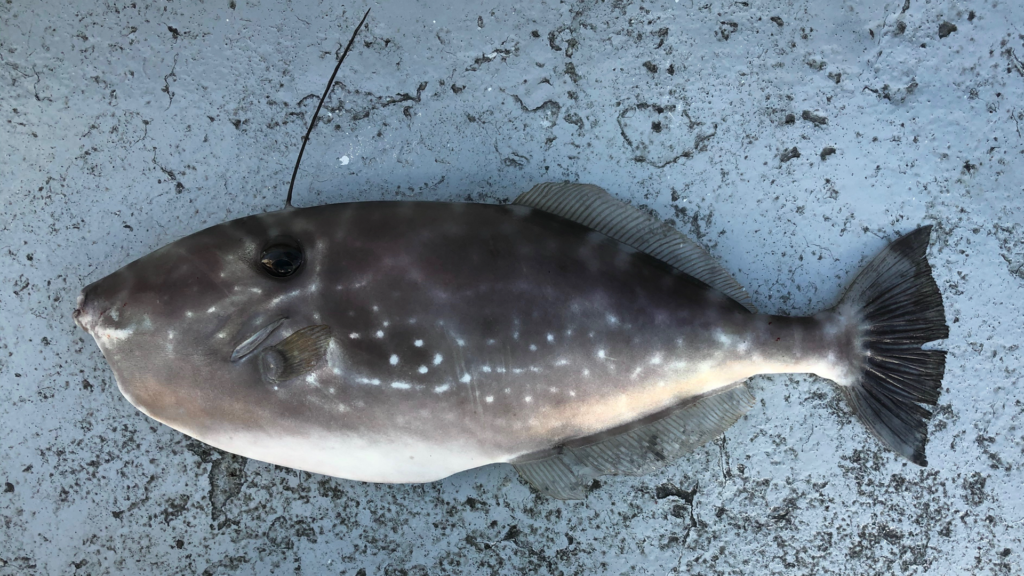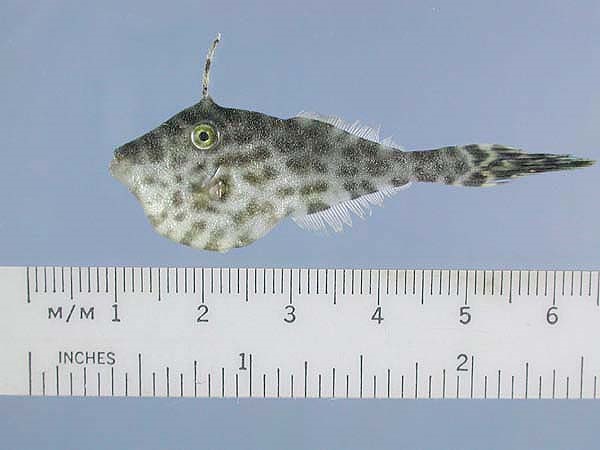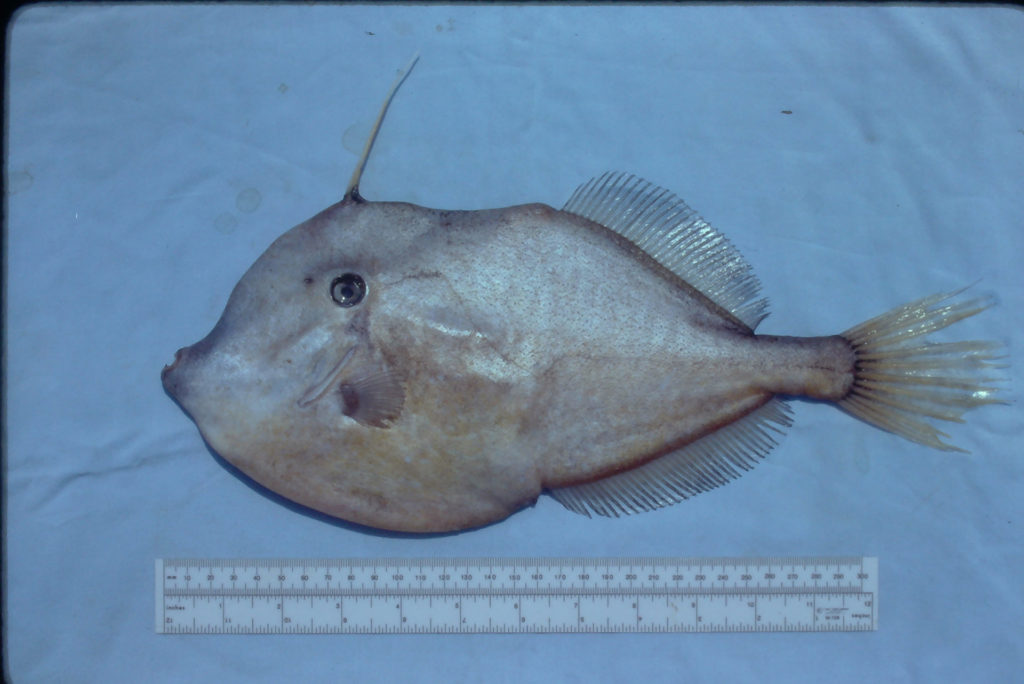| Family | Scientific Name | Author | Year | Common Name |
| Monacanthidae | Aluterus heudelotii | Hollard | 1855 | Dotterel Filefish |
Aluterus heudelotii
Unique Characters: Pelvic fin absent and without any obvious enlarged encasing scales (a rudimentary encasing scale sometimes present, but difficult to see with the unaided eye and not at end of pelvis). Dorsal-fin rays 32-41; anal-fin rays 35-44; pectoral-fin rays modally 12 and 13. Distance between eye and dorsal-fin spine relatively small in specimens larger than 10 cm standard length, 4.6-6.6% standard length. Coloration of live specimens bluish purple.
Similar Species:
Unicorn Filefish Aluterus monoceros
Scrawled Filefish Aluterus scriptus
Orange Filefish Aluterus schoepfii
Unicorn Filefish Aluterus monoceros. Pelvic fin absent and without any obvious enlarged encasing scales (a rudimentary encasing scale sometimes present, but difficult to see with the unaided eye and not at end of pelvis). Dorsal-fin rays 43-50; anal-fin rays 46-52; pectoral-fin rays modally 14. Caudal peduncle longer than deep. Caudal fin relatively short, 18-26% standard length.
Scrawled Filefish Aluterus scriptus. Pelvic fin absent and without any obvious enlarged encasing scales (a rudimentary encasing scale sometimes present, but difficult to see with the unaided eye and not at end of pelvis). Dorsal-fin rays 43-50; anal-fin rays 46-52; pectoral-fin rays modally 14. Caudal peduncle deeper than long. Caudal fin relatively long, 33-61% standard length.
Orange Filefish Aluterus schoepfii. Pelvic fin absent and without any obvious enlarged encasing scales (a rudimentary encasing scale sometimes present, but difficult to see with the unaided eye and not at end of pelvis). Dorsal-fin rays 32-41; anal-fin rays 35-44; pectoral-fin rays modally 12 and 13. Distance between eye and dorsal-fin spine relatively large in specimens larger than 10 cm standard length, 7.3-13.5% standard length. Coloration of live specimens with few to many orange spots.
Gallery


